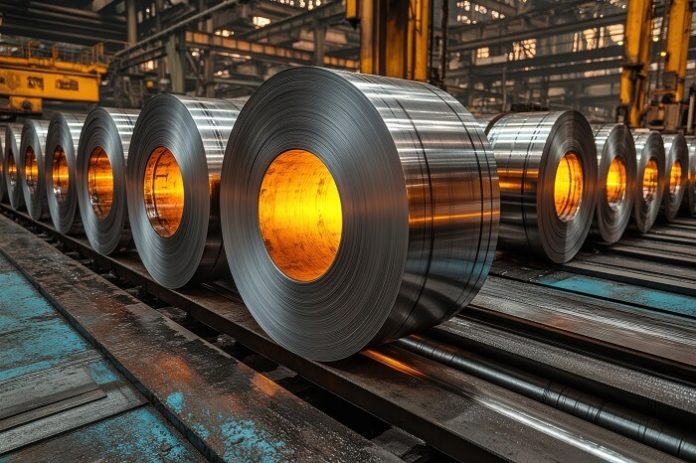Tata Steel has made a ground-breaking achievement in sustainability by pioneering the use of biochar (biomass-based charcoal) at its Jamshedpur plant.
The move significantly advances the company’s commitment to environmental responsibility, bringing it closer to its ambitious net zero target for 2045.
Reduced Carbon Emissions
The biochar initiative began as a trial in January 2023, where Tata Steel replaced approximately 30,000 tons of fossil fuel with biochar.
The transition has the potential to reduce carbon dioxide emissions by over 50,000 tons annually.
Additionally, the move enhances energy efficiency by partially substituting pulverized coal injection.
The successful application in large blast furnaces – those exceeding both 3000 m³ in volume and producing more than 9,000 tons per day – marks a global milestone in sustainable steel production.
Industry-Wide Implications for Sustainability
Rajiv Mangal, Vice President, Safety, Health and Sustainability at Tata Steel stated, “Introducing biochar as a partial replacement for coal is a significant step not just for Tata Steel but for the entire Indian steel industry. This development paves the way for greater reliance on alternative fuels in steelmaking and demonstrates our commitment to producing steel responsibly. It also sets a benchmark for other Indian steel producers to follow”.
Expanding Biochar Usage
Initially implemented as a trial in one blast furnace, the biochar injection process was expanded to three additional blast furnaces at the Jamshedpur plant.
The success has encouraged Tata Steel to extend biochar use to other steelmaking facilities in the future, further advancing the company’s sustainability goals.
Trials in Ferrochrome Production
Earlier this year, Tata Steel conducted another successful sustainability trial, this time using biomass in ferrochrome production at its plant in Athagarh, Odisha.
The facility, part of the company’s ferro alloys and minerals division (FAMD), became the first in India to experiment with biomass as a sustainable alternative to traditional carbon sources, reinforcing Tata Steel’s leadership in green innovation.
Commitment to Carbon Neutrality and Alternative Energy
As part of its journey toward carbon neutrality, Tata Steel has embraced multiple initiatives to reduce its environmental footprint.
These include using solar energy in its production facilities and biofuels for shipping raw materials and finished products.
Notably, Tata Steel became the first Indian steel company to undertake a full-laden leg voyage powered by a B24 biofuel blend mixed with Very Low Sulphur Fuel Oil (VLSFO), traveling from East Coast Australia to India.
Recognition for Sustainable Practices
Tata Steel’s efforts in sustainability have not gone unnoticed. The company was recognized as a Steel Sustainability Champion in 2024 by worldsteel for the seventh consecutive year.
Its Jamshedpur plant also became India’s first site to receive the ResponsibleSteel™ certification, with the Kalinganagar and Meramandali plants following suit.
Today, more than 90% of Tata Steel’s production in India comes from ResponsibleSteel™ certified sites.
As reported by avenuemail.in, through these progressive initiatives, Tata Steel is setting a global standard for sustainable steel production and reaffirming its role as an industry leader in environmental responsibility.
































